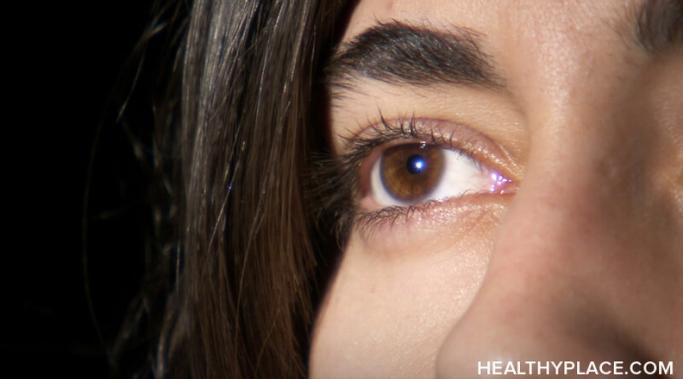Many people with dissociative identity disorder (DID) experience symptoms of depression. Sometimes, the depressive symptoms are minor and intermittent. Other times, the symptoms are substantial enough to result in an additional diagnosis of a depressive disorder. In either case, depressive symptoms can have a significant impact on those with DID, and can make living with DID a little more complex.
DID Symptoms
Suicide risk in dissociative identity disorder (DID) is a significant concern (Facts About Suicide). People with DID have one of the highest risks for suicide. According to the Diagnostic and Statistical Manual of Mental Disorders (DSM-5), more than 70% of outpatients with DID have attempted suicide, and multiple suicide attempts are common. What causes this increased suicide risk in DID, and can it be prevented?
I am living with dissociative identity disorder and I can't just "get over it." Would you tell someone with diabetes to "just get over it?" Dissociative identity disorder (DID) and other mental illnesses are illnesses. They all have causes, treatments, and greatly affect the individuals that have them. Mental illness is not a choice. It cannot be switched off and on at will. No one can wake up and decide they aren't going to be mentally ill that day. So why do some people expect those with mental illnesses like DID to just get over it?
Dissociative identity disorder (DID) includes the experience of hearing voices, medically referred to as auditory hallucinations. This is also a common symptom in several other mental illnesses, including schizophrenia, schizoaffective disorder and bipolar disorder. The experience of hearing voices in DID is quite different from the experience of hearing voices in other disorders, however, and the causes and treatments are not the same.
Life with dissociative identity disorder (DID) is a journey full of new discoveries, growth and understanding. It is also a journey full of denial, confusion, and pain. Just when you think you have a grasp on life with DID, something (a new alter, or a new memory, perhaps) comes along and shakes everything up. Life with DID can be a difficult journey, but it's not an impossible one.
While the experience of alters becomes the norm when you have dissociative identity disorder (DID), it can be difficult for those without the disorder to understand what the experience of having alters in DID is like. To continue with Mental Health Month and the #mentalillnessfeelslike campaign, I asked a group of people with DID to describe how it feels to have alters. Here is a glimpse of what it feels like.
What does life with dissociative identity disorder feel like? May is Mental Health Month and people around the world are sharing what mental illness feels like. To go along with the #mentalillnessfeelslike campaign, I asked a group of people with dissociative identity disorder (DID) to describe, in their own words, what having DID feels like. The answers were varied, with both positives and negatives. To one person, living with DID feels like, "having a war inside my head," yet to another, DID "feels like a gift." The answers show just how diverse DID really is.
For those living with dissociative identity disorder (DID), self-care -- even the most basic physiological and safety needs -- can feel like impossible tasks to fulfill, especially during times when self-care is most needed. If basic needs are unmet, this can hinder the healing process and make living with DID a little more challenging. You must meet your basic needs with DID self-care.
"How are you?" is a commonly asked question, but for those of us living with dissociative identity disorder (DID), the answer is not so simple. A person may seem alright on the outside, but can be hiding a tremendous amount of despair on the inside. One part may very well answer, "Great!" while another part wants to answer, "Horrible!" Most times, when living with DID, we end up telling people we're okay -- but are we really okay?
Mental illnesses are complex. Symptoms can be misinterpreted, resulting in a misdiagnosis. This is understandable, given that different disorders often share some similar symptoms. In cases of dissociative identity disorder (DID), there is often confusion between bipolar disorder and DID symptoms. While bipolar disorder and DID each have unique symptoms, there is some symptom overlap. It is important to recognize the differences in symptoms, as these disorders have different causes and treatments.



